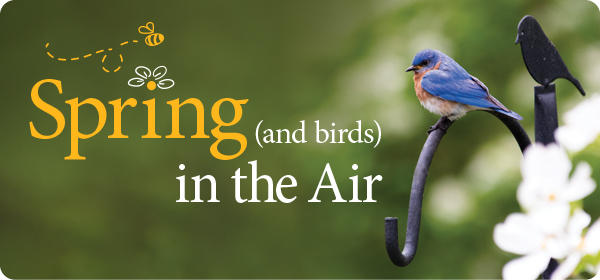
Get Ready for a Fun-filled Season in Your Backyard
You made it through winter and as a reward, the next few months will bring some of nature’s most spectacular gifts.
Spring migration brings a show with an ever-changing cast of characters passing through your yard, including hummingbirds, orioles and warblers. Next comes nesting season, a time to watch for bird parents bringing their noisy fledglings to your feeders. And it's fun to watch the adults, busy in your backyard habitat, as they glean pollinating insects to feed their ever-impatient youngsters.
Ideal Nesting Foods - We tend to think, "bird food is bird food, right?" Why bother offering "different" foods? It turns out, some foods have extra benefit during "nesting season" (Feb-August). No-Melt Suets High Fat, High Protein, soft and moist. Some have calcium added as well. When no-melt suet is "soft" and "moist" birds can use it supplement what they feed to hatchlings. This can't be done with "dry foods" like seed.
Examples - Bark Butter products, WBU Super Suets and Bluebird Bugberry Blend are great examples.
Seed Blend Foods - Seed blends that are fortified with Calcium benefit nesting mature birds and older juveniles. Females need calcium for egg laying and Juveniles for bone growth.
Examples: WBU Nesting Super Blend (seed & cylinders), All of our "Plus" blends and No-Mess NMCD.
Mealworms - Live Mealworms are a "Nesting Super Food." Soft and moist and fresh- Mature birds will feed these directly to their hatchlings and older juveniles and eat some themselves! Dry mealworms are of benefit to older birds and juveniles but can't be fed to hatchlings. Don't think you can handle the "live worms?" Use Bark Butter & WBU Super Suets instead. These can also be fed to hatchlings!

